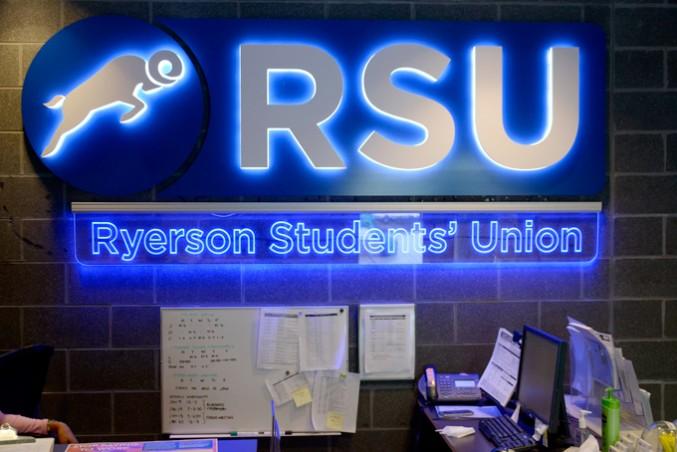By Alanna Rizza
The Ryerson Students’ Union (RSU) has completed a report evaluating the effectiveness of the services provided by the Canadian Federation of Students (CFS). The report also includes the history of the relationship between the RSU and the CFS, the controversies between the two organizations and the cost of the RSU’s membership with the CFS.
“[I’m] happy with the report, we (the RSU) wanted a very fact-based report and that’s what we delivered,” said RSU vice president education, Victoria Morton.
The CFS report committee included RSU president Obaid Ullah, vice president education Victoria Morton and Faculty of Arts director, Daniel Lis.
The report was completed after a motion was passed at the RSU’s board of directors meeting on April 26.. The RSU pays an annual levy of about $475,000 to the CFS, which provides Ryerson with various services and represents the university on a national scale.
The RSU has been involved with the CFS since 1982.
According to Morton, the purpose of the report was to educate Ryerson students about what the CFS does for the university.
The report states that the RSU has concerns with the CFS not taking meeting minutes (notes) during official meetings and not making them available to the general public. In the past, legal battles between student unions and the CFS have ensued as a result. In 2008, Cape Breton University Students’ Union declared themselves bankrupt after losing a seven year legal battle with the CFS. The petition to leave was denied by the CFS, even though over 90 per cent of students were in favour.
“I’m now hoping [the report] will also serve as an opportunity for self-reflection for the CFS resulting in improvements,” Morton said.
The CFS has supported past RSU campaigns, including the push to make Gould Street a pedestrian only area in 2011, splitting tuition fee payments into two installments to coordinate with OSAP disbursements and, in 2006, the CFS put forth a provincial-wide report analyzing the experiences of students facing Islamophobia, which led to more multi-faith spaces and increased efforts for more halal food options on campus.
The report also notes that since the CFS originated in 1982, it has been fighting for lower tuition fees. However, there is no evidence that the CFS has influenced tuition fees, according to the report.
To leave the CFS, a petition must be initiated by a student other than a student union member. It must have 20 per cent of student union members’ signatures. A counter petition may also circulate and there has to be a referendum vote for the student union membership.
In response to the report, CFS-Ontario Spokesperson Rajean Hoilett said, “It is not the intention or priority of Federation’s elected representatives and leadership to initiate any legal action with members moving forward. At this point in time, it is important to note that all legal cases that have been initiated by or against the Federation within the last decade have been resolved in the recent past.”
Ullah said he hopes for a more positive relationship with the CFS, but no matter how students want to move forward, the RSU will support them.
“I just want students to be more aware of what is going on, I want students to be more informed. Every student is a member of the CFS and they have a right to know about that involvement and what that entails.”










Leave a Reply